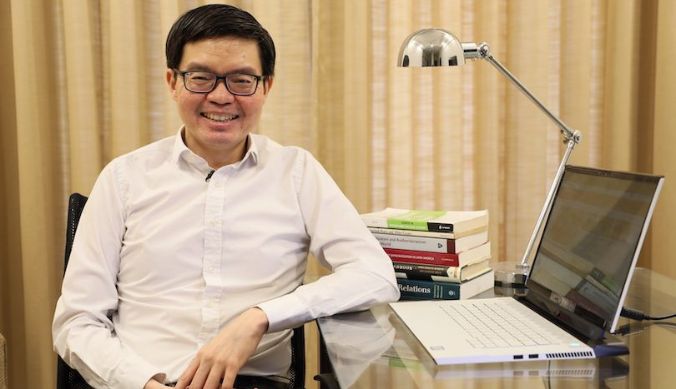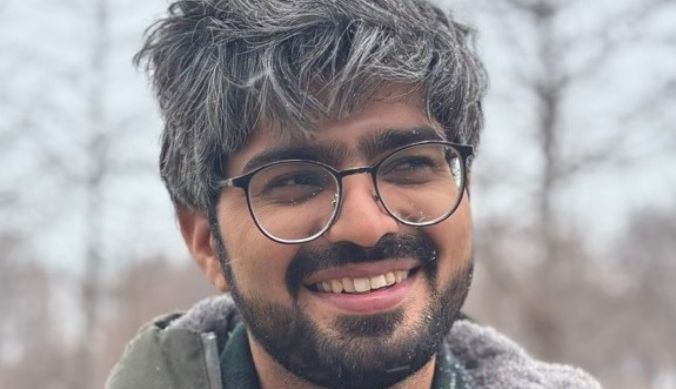Representation of Ashoka University by Asish Singh at COP28 in Dubai
Reflecting on my time at COP28 in Dubai, I gained profound insights that shaped my understanding of global environmental diplomacy. As a final-year undergraduate student at Ashoka University, witnessing the dynamics of global climate negotiations in December 2023 was truly enlightening. The conference marked a significant shift in the international community’s approach to combating climate change, especially with the introduction of a new fund aimed at addressing the losses and damages vulnerable countries face from climate impacts. This initiative recognized the disproportionate effects of climate change across different regions, setting a historic precedent.
One of the most significant outcomes was the UAE Consensus, which called for a transition away from fossil fuels in energy systems. This was the first time the term “fossil fuels” appeared in a COP’s formal outcome, signalling a historic shift towards reducing the primary source of greenhouse gas emissions. The consensus included ambitious goals such as tripling the world’s renewable energy capacity and doubling its energy efficiency by 2030. Despite these ambitious goals, the discussions highlighted the financial and policy challenges, particularly for developing countries, in reaching these objectives.
At the summit’s kickoff, I was particularly struck by the operationalization of the Loss and Damage Fund. It’s a crucial step meant to aid countries most vulnerable to climate impacts that surpass their ability to adapt. However, the initial funding commitments, though a positive move, didn’t meet the anticipated needs. This really brought home the need for greater financial backing and fresh approaches to funding, which we need to address more vigorously in future discussions. During the conference, there was also progress toward setting and defining adaptation targets through the Global Goal on Adaptation. Yet, the persistent lack of quantified targets and substantial financial support for developing countries stood out as a glaring issue to me. This omission continues to highlight the significant hurdles we face in adaptation efforts and the broader shift towards clean energy, underscoring the necessity for more detailed and focused discussions at upcoming conferences.

The results from the Global Stocktake at COP28 reinforced my view that countries must act swiftly to update their Nationally Determined Contributions (NDCs) well before COP30 in 2025. These updates should not only refine 2030 targets but also establish ambitious new goals for 2035. This urgency aligns with the latest IPCC findings, which I find compelling: they call for a 60% reduction in global greenhouse gas emissions from 2019 levels by 2035 to keep global warming under 1.5 degrees Celsius. Interestingly, the summit shied away from solidifying any rules on carbon markets, leaving essential aspects of international carbon trading up in the air. I feel this cautious approach was necessary to avoid establishing rules that might undermine the environmental integrity and transparency we desperately need.
During the conference, I engaged with key climate process stakeholders, including multilateral development banks, fossil fuel regulators, universities, and youth groups. A significant development for those of us trusting in the potential of private capital-led green finance was the introduction of ALTÉRRA, an innovative climate finance initiative. Backed by a $30 billion commitment from the UAE, ALTÉRRA’s goal is to mobilize $250 billion by 2030 for climate action, focusing on emerging markets and developing economies. This initiative is set to revolutionize climate-conscious investing and lead the private sector in tackling climate challenges.
The outcomes of COP28 represent both a significant step forward and a reminder of the work that remains. My participation, fully supported by the Hon’ble Vice Chancellor and the LiveGreen@Ashoka initiative, underscored the importance of collaborative efforts, the interplay of diverse interests, and the urgent need for concrete action. As we move forward, the challenge lies in maintaining the momentum, ensuring that commitments translate into action, and continuously striving for inclusive, equitable, and sustainable solutions to the climate crisis. The decisions and commitments made at COP28 provide a roadmap for future climate action, but their success will ultimately be measured by the tangible actions taken in the coming years. The journey ahead is complex and challenging, but it is also filled with opportunities for significant impact and innovation in our collective response to the climate crisis.
(Written By: Asish Singh, Ashoka Student)
Study at Ashoka












